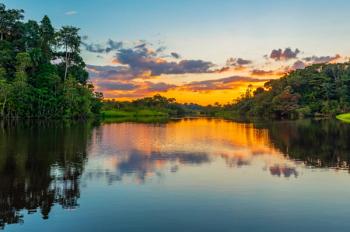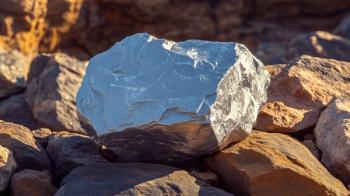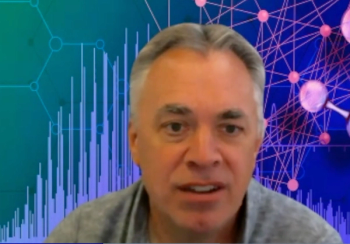
- Special Issues-07-01-2017
- Volume 15
- Issue 3
Review of the 65th Conference on Mass Spectrometry and Allied Topics
We present a brief review of this year’s ASMS conference, which took place June 4–8 in Indianapolis, Indiana.
We present a brief review of this year’s ASMS conference, which took place June 4–8 in Indianapolis, Indiana.
The 65th Conference on Mass Spectrometry and Allied Topics took place June 4–8 at the Indiana Convention Center in Indianapolis, Indiana.
New at this year’s conference were two parallel tracks-instead of just one track-of tutorial lectures, that took place on Sunday.
In one track, Kermit K. Murray of Louisiana State University (Baton Rouge, Louisiana) gave a talk titled “MALDI: Past and Future,” and Donald F. Hunt of the University of Virginia (Charlottesville, Virginia) presented “Cancer Immunotherapy and Mass Spectrometry.” In the other track, Erin S. Baker of the Pacific Northwest National Laboratory (Richland, Washington) presented a talk titled “Ion Mobility Spectrometry: Analyzing Molecules as They Tumble through Life,” and Norman J. Dovichi of the University of Notre Dame (South Bend, Indiana) presented “CE/MS - Ready for Prime Time?”
The Sunday tutorials were followed by the opening plenary lecture. David S. Millington of Duke University Medical Center (Durham, North Carolina) gave a presentation titled “Towards a Good Start in Life: Neonatal Screening and Beyond.” Additional plenary lectures took place Monday, Tuesday, and Thursday. Catherine E. Costello of Boston University (Boston, Massachusetts), who won the Award for a Distinguished Contribution in Mass Spectrometry, gave Monday’s lecture. Costello was recognized for her pioneering contributions to the development of tandem mass spectrometry of glycans and glycoconjugates.
Tuesday’s plenary celebrated the Biemann Medal Award. Winner Ryan Julian of the University of California (Riverside, California) received the award for contributions related to his work developing and exploiting photoinitiated gas-phase radical ion chemistry to probe peptide and protein structure.
The 2017 Research Awards were also presented on Tuesday. Peter Nemes of The George Washington University (Washington, D.C.) and Abraham Badu-Tawiah of the Ohio State University (Columbus, Ohio) were presented with an award of $35,000 each. Thermo Fisher Scientific sponsored Nemes’s award, and Waters Corporation sponsored Badu-Tawiah’s award.
On Wednesday, five awards in the amount of $10,000 each, intended to promote the professional career development of postdoctoral fellows in the field of mass spectrometry, were presented to the following ASMS members: Bushra Amin of the University of Pittsburgh (Pittsburgh, Pennsylvania), Andrea Carra of the University of Minnesota (Minneapolis, Minnesota), Romel P. Dator of the University of Minnesota, Charles M. Nichols of Vanderbilt University (Nashville, Tennessee), and Wen-Jing Zhang of Wayne State University (Detroit, Michigan).
Oral Sessions
Six oral sessions took place Monday morning: “Applications of Stabile Isotope Labeling in MS,” “Metabolomics: New Technologies and Applications,” “Innovations and Applications in Forensics;” “Plant ‘Omics,’” “Ion Mobility: New Developments & Applications,” and “Synthetic Polymers.”
The eight Monday afternoon oral sessions included “MS in Clinical Analysis,” “Analytical Challenges of Microdosing and Microsampling Studies,” “Metabolomics: Untargeted Profiling,” “Environmental: Emerging Contaminants,” “Hydrogen-Deuterium Exchange MS,” “Ion Mobility: Small Molecules, Pharmaceuticals, and DMPK,” “Instrumentation: Ambient Ionization: Instrumentation & Applications,” and “Fundamentals: Ion-Ion and Ion-Neutral Interactions.”
Tuesday’s eight morning sessions included “Informatics: Peptide and Protein Identification,” “Quantitative Analysis in Drug Discovery and Development,” “Qualitative and Quantitative Analysis of Post-Translational Modifications,” “Exposomics: Targeted, Untargeted and Bioinformatics Methodologies,” “Macromolecular Complexes,” “Ion Mobility Structure,” “Instrumentation: Mass Analyzer Innovations,” and “Fundamentals: Ion Spectroscopy.”
Eight Tuesday afternoon sessions included “Informatics: Metabolomics,” “MS in the Regulatory Environment,” “Quantitative Proteomics in Systems Biology,” “Environmental: New Instrumentation and Approaches,” “Covalent Labeling and Chemical Crosslinks,” “Microorganisms: Identification and Characterization,” “Instrumentation: Innovations in FT-Based Mass Analyzers,” and “Fundamentals: Ion Activation and Dissociation.”
The eight Wednesday morning sessions included “Informatics: Data-Independent Acquisition: Innovative Methods and Applications,” “Food Safety & Chemistry: Non-Targeted Screening,” “Biomarkers: Qualitative Analysis,” Lipidomics: Lipids and Profiling,” “Glycopeptides and Glycoproteins,” “Imaging: Instrumentation & Method Development,” “Instrumentation: MS in Extreme Environments,” and “Fundamentals: Photoionization and Photodissociation.”
Wednesday afternoon’s eight sessions included “Informatics: Multiomics Integration and Applications,” “Food Safety & Chemistry: Foodomics, Allergens, Bacteria, Foods,” “Antibodies and Antibody Drug Conjugates,” “Lipidomics: New MS Technologies and Applications,” “Biomarkers: Quantitative Analysis,” “Imaging: Computational Methods and Analysis,” “Instrumentation: New Developments in Ionization and Sampling,” and “Fundamentals: Molecular Modeling and Quantum Mechanical Calculations in Ion Mobility and MS.”
On Thursday morning, the following eight sessions took place: “Informatics: Innovations,” “MS in the QC Lab,” “Membrane Protein MS,” “Nucleic Acids and Oligonucleotides,” “Native MS in Structural Biology,” “Imaging: Pharmaceuticals, Metabolites, and Lipids,” “GC/MS, GC/GC/MS, GC/MS/MS, and GC/HRMS,” and “Fundamentals for Everyone.”
Afternoon sessions on Thursday included the folowing eight sessions: “Informatics: Discovery Proteomics,” “HRMS for Quantitation in Drug Discovery, Development and Beyond,” “Top Down Protein Analysis,” “Carbohydrates,” “Protein-Ligand Interactions,” “Imaging: Biomedical Applications,” “Instrumentation: Innovative Separations Approaches,” and “Energy, Petroleum, and Biofuels.”
At the closing session on Thursday, Kristen Marhaver of Research Station Carmabi (Willemstad, Curaçao) gave a plenary lecture titled “Saving the Great Coral Reefs.”
Thursday’s closing event at the Indiana State Museum, a short walk from the convention center, included a buffet dinner, an IMAX showing that was associated with Marhaver’s closing session on the great coral reefs, and a ride on one of the canal gondolas.
ASMS 2018
The 66th Annual ASMS Conference will be held June 3–7 in San Diego, California. For more information, visit
Cindy Delonas is the Associate Editor for Spectroscopy. Direct correspondence to:
Articles in this issue
Newsletter
Get essential updates on the latest spectroscopy technologies, regulatory standards, and best practices—subscribe today to Spectroscopy.



